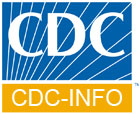Skip directly to the search box, site navigation, or content.
Division of Foodborne, Bacterial and Mycotic Diseases (DFBMD)
Glanders (Burkholderia mallei)
Clinical Features
Primarily a disease of horses, mules, and donkeys. In humans, disease can occur in four basic forms: acute localized infection, septicemic illness, acute pulmonary infection, or chronic cutaneous infection. Symptoms include fever, malaise, pleuritic chest pain, cervical adenopathy, splenomegaly, and generalized papular/pustular eruptions. Case-fatality rate is over 50% with traditional antibiotic treatment, though susceptibility data suggest newer antibiotics should be efficacious.
Etiologic Agent
Burkholderia (formerly Pseudomonas) mallei, a gram-negative bacillus.
Incidence
Rare in humans. Sporadic. No naturally acquired cases have occurred in the United States in almost 60 years. Cases continue to occur in Asia, Africa, the Middle East, and South America.
Sequelae
Systemic invasion can occur with resulting chronic abscessation.
Transmission
B. mallei is generally transmitted from animals to humans by invasion of nasal, oral, and conjunctival mucous membranes; by inhalation into the lungs; or through lacerated or abraded skin.
Risk Groups
Veterinarians, horse and donkey caretakers, abattoir workers, workers in laboratories where the organism is being handled or in areas where equines may be infected.
Surveillance
No national or state surveillance exists.
Trends
Remains extremely rare in humans. In 2000, one case occurred in a laboratory worker.
Challenges
Development of rapid laboratory, clinical, and epidemiologic protocols for the timely detection of glanders infections resulting from bioterrorism. Develop post-exposure antibiotic prophylaxis strategies for BT preparedness.
Opportunities
Validate molecular subtyping techniques.
Content Source: National Center for Zoonotic, Vector-Borne, and Enteric Diseases (ZVED)
Program Contents
Contact Information

